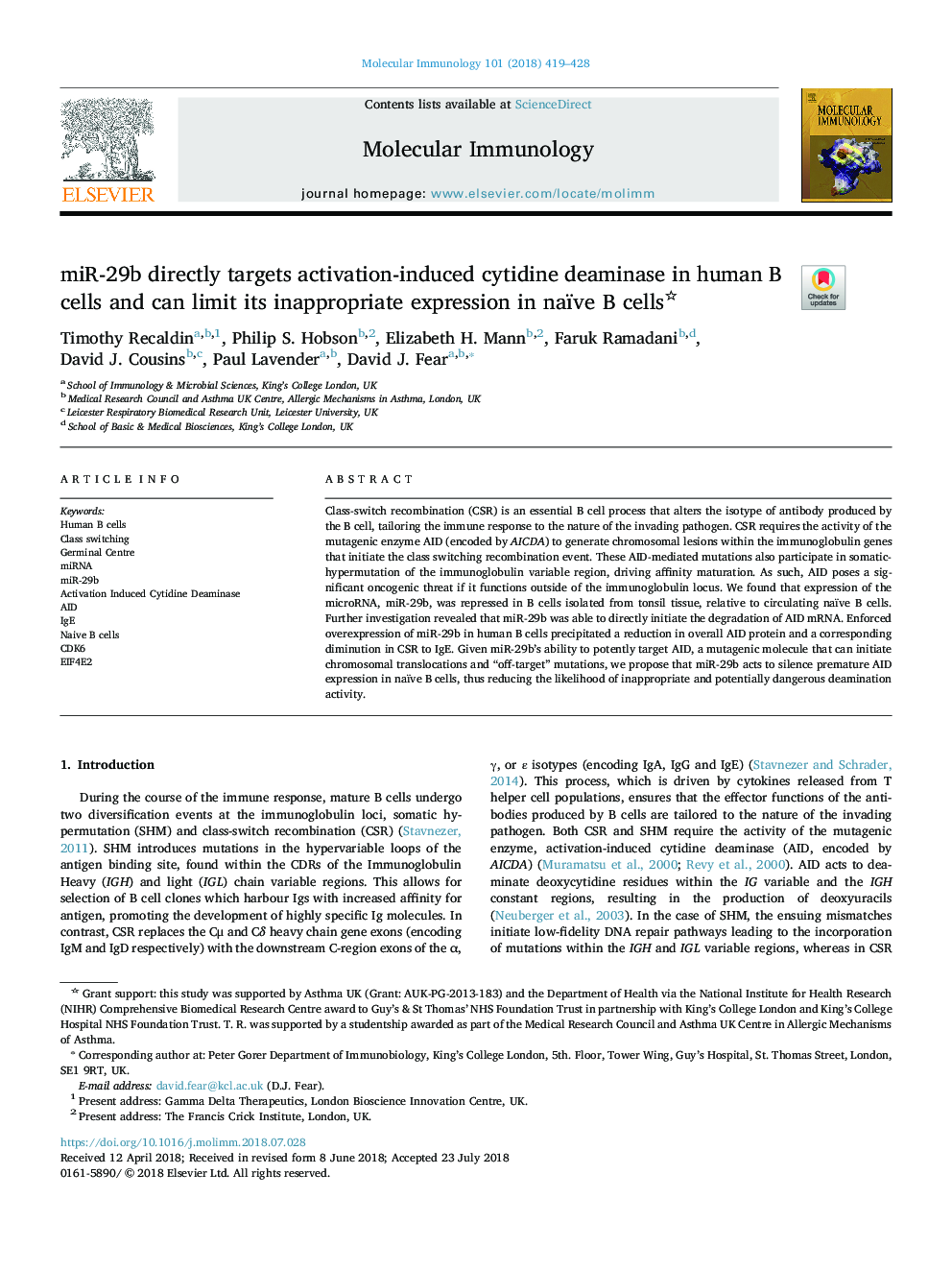| Article ID | Journal | Published Year | Pages | File Type |
|---|---|---|---|---|
| 8648447 | Molecular Immunology | 2018 | 10 Pages |
Abstract
Class-switch recombination (CSR) is an essential B cell process that alters the isotype of antibody produced by the B cell, tailoring the immune response to the nature of the invading pathogen. CSR requires the activity of the mutagenic enzyme AID (encoded by AICDA) to generate chromosomal lesions within the immunoglobulin genes that initiate the class switching recombination event. These AID-mediated mutations also participate in somatic-hypermutation of the immunoglobulin variable region, driving affinity maturation. As such, AID poses a significant oncogenic threat if it functions outside of the immunoglobulin locus. We found that expression of the microRNA, miR-29b, was repressed in B cells isolated from tonsil tissue, relative to circulating naïve B cells. Further investigation revealed that miR-29b was able to directly initiate the degradation of AID mRNA. Enforced overexpression of miR-29b in human B cells precipitated a reduction in overall AID protein and a corresponding diminution in CSR to IgE. Given miR-29b's ability to potently target AID, a mutagenic molecule that can initiate chromosomal translocations and “off-target” mutations, we propose that miR-29b acts to silence premature AID expression in naïve B cells, thus reducing the likelihood of inappropriate and potentially dangerous deamination activity.
Keywords
Related Topics
Life Sciences
Biochemistry, Genetics and Molecular Biology
Molecular Biology
Authors
Timothy Recaldin, Philip S. Hobson, Elizabeth H. Mann, Faruk Ramadani, David J. Cousins, Paul Lavender, David J. Fear,
